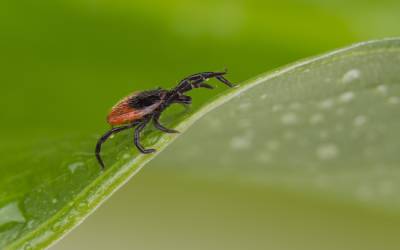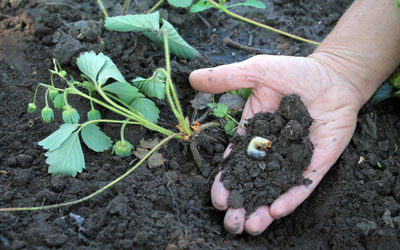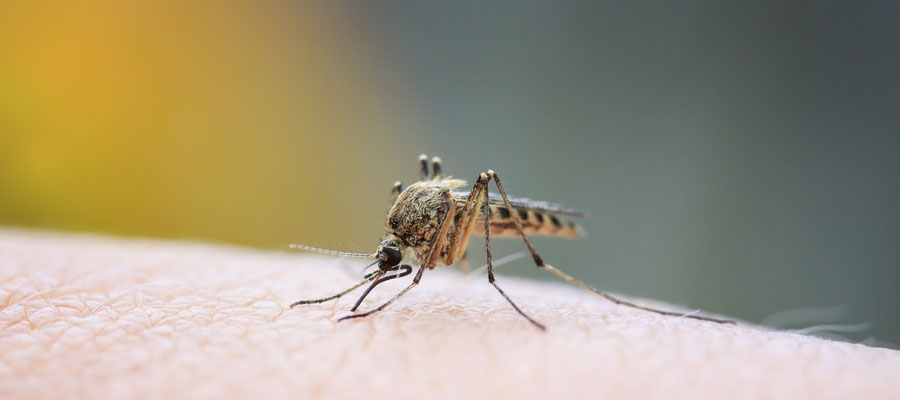 We all look forward to the warm days spent out in the sun during summer. However, the more time we spend outside, the higher our risk of a tick bite becomes. Ticks love areas with consistent warmth and humidity, especially when humans and animals are around. They live in the woods, around hiking trails, in backyards, and many more areas. Ticks have also expanded to more regions than usual recently due to increasing temperatures.
We all look forward to the warm days spent out in the sun during summer. However, the more time we spend outside, the higher our risk of a tick bite becomes. Ticks love areas with consistent warmth and humidity, especially when humans and animals are around. They live in the woods, around hiking trails, in backyards, and many more areas. Ticks have also expanded to more regions than usual recently due to increasing temperatures.
If you have dealt with tick problems every summer around Northern Utah, read on to learn Rentokil’s top tick control tips. We will teach you the reasons why ticks around and what you can do to avoid them.
Keeping Ticks Away From Your Yard
Ticks like to hang around densely vegetated areas with lots of trees or small animals around. If this sounds like your yard, you are likely to find some ticks this summer. To keep ticks away from your your hard, you can do the following:
- Trim trees: Ticks make hiding places out of overgrown plants. If trees are hanging over your deck, porch, play structure, or any other area where you hang out, they will be able to find you easily.
- Mow your lawn: Ticks also like to hide in tall grass, especially where animals live. If you mow your lawn once a week, it will reduce your chances of attracting ticks.
- Clean up your yard: Any piles of yard waste, firewood, old chairs and couches, or garbage can create hiding places for ticks.
- Prevent wildlife problems: Small animals like squirrels, racoons, mice, rats, and more can attract ticks. They will look to them as hosts to feed on and eventually make their way to you.
Preventing Ticks Inside the House
Ticks can only live indoors for up to a few days at their most resilient. However, in indoor spaces that accumulate more humidity, like bathrooms, sheds, and cabins, ticks can hang around for longer. Most ticks end up indoors because they were unknowingly brought inside by a person or a pet. Here’s how to prevent that from happening:
- Inspect your pets: People with dogs that spend their days outside or go on frequent walks see the most tick problems indoors. Make sure to check your pets for ticks after they spend time outdoors.
- Cover your skin: The more exposed skin you leave when outdoors, the more likely you are to attract ticks. Wearing long pants or high socks can help you avoid them.
- Use bug spray: When going on a hike or spending the day in the sun, use bug spray on your exposed skin. This will help you avoid bringing ticks back indoors at the end of the day.
Tick Removal Professionals in Northern Utah
If you need help getting rid of ticks around your property this summer, let your local pest control company know. At Rentokil, we take pride in our holistic tick control service: a complete inspection to determine the infestation’s source, implementation of pertinent tick control tactics, and advice to keep our customers tick-free going forward. Contact us today for a free quote!

 This year, families are likely spending more time in their backyards than ever. Spending more time outside means more encounters with insects and pests. While most pests are just a fact of life outside, no one wants them invading their outdoor living space. At Rentokil, we know that pests in your backyard are less than ideal. For this reason, we’ve gathered our top tips and tricks to make your yard less attractive to pests in general. Keep reading to learn how to get bug-free outdoor living.
This year, families are likely spending more time in their backyards than ever. Spending more time outside means more encounters with insects and pests. While most pests are just a fact of life outside, no one wants them invading their outdoor living space. At Rentokil, we know that pests in your backyard are less than ideal. For this reason, we’ve gathered our top tips and tricks to make your yard less attractive to pests in general. Keep reading to learn how to get bug-free outdoor living. Keeping a lawn alive and healthy is hard enough. When you have a lawn pest problem, it can be even harder. Unfortunately, summertime in Utah is a haven for lawn pests, many of which hatch in the late summer and remain active through the fall months. Lawn insects can threaten the health of your roots, damaging existing turf and preventing new growth. A single insect can make a big impact, making it important to learn how to prevent summer lawn pests. The lawn experts at Rentokil are here to share their top tips for keeping lawn pests away for good.
Keeping a lawn alive and healthy is hard enough. When you have a lawn pest problem, it can be even harder. Unfortunately, summertime in Utah is a haven for lawn pests, many of which hatch in the late summer and remain active through the fall months. Lawn insects can threaten the health of your roots, damaging existing turf and preventing new growth. A single insect can make a big impact, making it important to learn how to prevent summer lawn pests. The lawn experts at Rentokil are here to share their top tips for keeping lawn pests away for good.